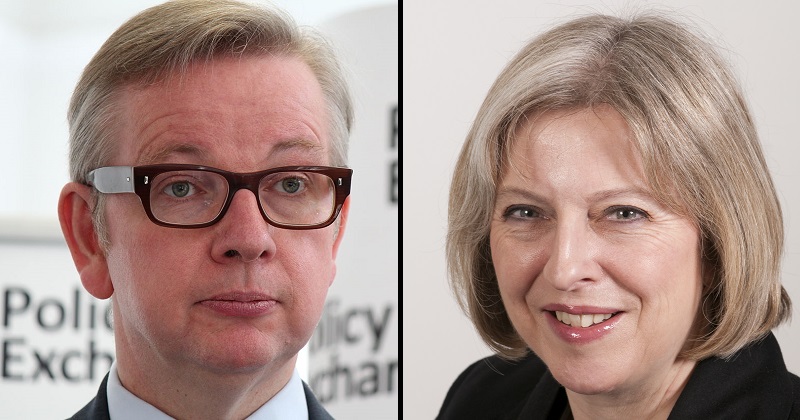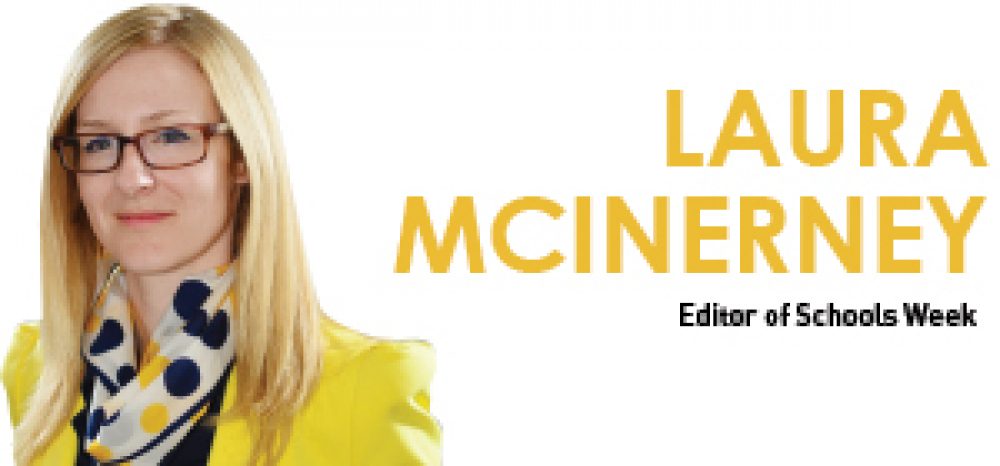Former education secretary Michael Gove is running for Conservative Party leadership but editor Laura McInerney explains why education’s influence may run even deeper than expected in the upcoming campaign.

We now know it will be Michael Gove versus Theresa May in the Conservative Party leadership race.
Stephen Crabb, Liam Fox and Andrea Leadsom have also put their hand up and shouldn’t be counted out. Their betting odds are currently rock-bottom but the Conservative Party has a history of choosing a dark horse.
There are interesting implications for the school community to a Gove vs May contest.
First, both are advised by people with education credentials. Dominic Cummings, who spearheaded the Leave campaign, spent almost three years at the Department for Education as Gove’s special advisor. Their relationship is so close that Gove has privately referred to Cummings as his ‘daemon’ – a character in Philip Pullman novels which represents the parts of your personality you choose to hide from the world.
Cummings was not an overwhelming success at the education department. Embroiled in employment tribunals, information scandals and constantly evasive about his role in an abusive twitter account called ‘@toryeducation’, the level of trust towards him among many people in the education profession was low, although he redeemed himself two years ago by giving a very reasoned talk to 500 teachers in Leeds which seemed to surprise the crowd. It shouldn’t have done. He has spent a decade thinking about education. He may not be conventional in his behaviour but he’s informed.
UPDATE: Since this report, Dominic Cummings has publicly said he is not “doing” Michael Gove’s campaign and that he told both Boris Johnson and Gove he wanted nothing to do with leadership bids. Instead he said Henry Cook should be called. Presumably this is the Henry Cook who worked at the education department with Gove near the end of his tenure but kept a much lower profile than Cummings. (And shouldn’t be confused with Henry de Zoete who was there throughout Gove’s tenure).
It would be unusual for Cummings to have no influence, though. Even in the period between Cumming’s finishing at the education department and his work on the Leave campaign, he continued writing and thinking about education. During that time I bumped into him near Whitehall and he was still very up-to-date with education policies. (He was particularly angry about the Conservative manifesto pledges on schools, I seem to remember).
The situation is clearer on Theresa May’s side. Nick Timothy, the current chief of New Schools Network (NSN), will be running her campaign. He has publicly confirmed the work will be undertaken on an “unpaid sabbatical” from a NSN, a government-funded group which promotes free schools.
Timothy joined the organisation in 2015. He has no other background in education apart from volunteering on a mentoring scheme. His skill is in political campaigning. When I asked if he was using the free schools role as a sitting-place while he waited to get back into May’s office he laughed it off and characteristically avoided a straight answer.
What both characters bring is awareness of the schools landscape and relationships with its key players. They also have strong opinions on education policy.
Gove and May bring different views on education to the leadership race.
Take grammar schools. Gove is against their return. He refused to agree the controversial expansion of a grammar onto a new site 9-miles away from the original. May has been publicly supportive of grammar expansions, pushing for one in her own constituency.
Take grammar schools. Gove is against their return
Gove has also been stronger and more specific on the duty of schools to tackle extremism and radicalisation. He and May fell out in the summer of 2014 – with reports from the time claiming that Gove felt the home office was being too soft on extremists, though the amount of spin around those events makes the truth of it hard to determine. (A reminder of just how good both of their teams are at gripping a narrative).
With growing uncertainty over the country’s future, and terrorist attacks linked to ISL occurring across the world, both leaders will potentially resurrect this fight – trying to show themselves as the person most seriously committed to security. For schools, any increase in ‘extremism crackdown’ promises could mean further safeguarding rules in future.
Current education ministers have largely lined up behind Gove. Presumably because they think he will support continuation of the academy agenda.
Education secretary Nicky Morgan, schools minister Nick Gibb and skills minister Nick Boles have all said they support Gove’s campaign. Only Sam Gyimah, the junior minister for childcare, is supporting May.
Some people have shown surprise that Morgan is supporting Gove. When she took office, the media reported a tempestuous relationship between the two, with allegations that Gove couldn’t stop interfering. Sources close to both have confirmed over time that Gove did keep an undue level of interest in education – although given his years working on it, that’s not so surprising.
Morgan is, at heart, a pragmatist
Morgan is, at heart, a pragmatist who has spent the past two years as the salesperson for the reforms that Gove started. Even if she disagreed with free schools and academies at the start (and I don’t believe she did), she would have needed to become convinced of them to do her job.
Her white paper – published just a few months ago – is important to her, and to the team who helped write it. She will no doubt want to safeguard its future. Given that it’s based on Gove’s ideology, I can see why he is a safer bet.
For the others – Boles and Gibb – they have a long history of working with Gove. There was never going to be any other choice for them.
What does this all mean for schools?
Given most of the leadership campaign will play out over the summer, it probably won’t matter that much. What will matter is who wins.
What will matter is who wins
Should May walk it, and decide not to reward anyone who supports Gove with important roles, the entire education ministerial team will be ejected. If Gove wins, it is possible he might keep Morgan and the rest of her team; or promote Morgan, and replace her with someone very similar to carry on the academy plan.
In both cases they are likely to stick to the Conservative manifesto pledges: 500 more free schools, allow ‘good’ schools to expand (including grammars), change funding structures.
What will be intriguing is that both leaders are being informed by people so involved with education. That’s unusual. And it could mean education ideas are talked about far more than we might otherwise expect. It could also mean greater continuity in education than first feared in the aftermath of the referendum.
As for who will win the leadership: there’s no way to predict that at this stage. The events of the last week show anything is possible. On past form, the best bet would be neither of the front-runners.
But, as I have said many times before with Gove, the question teachers must now consider is whether the devil they know well will turn out to be a better option than the ones they’ve yet to encounter.
Save
Save








The question of who’s going to be the next leader depends on trustworthiness. Which of all the candidates can be UK trust most with leading the delicate negotiations for the UK to leave the EU?
The answer is not Michael Gove. He is divisive; he dislikes compromise; he wants his own way. His smearing of organisations such as the OECD as Nazis during the Leave campaign because they didn’t agree with him, doesn’t augur well for any future negotiating which may need the opinion of these experts.
According to former schools minister, David Laws, in his book ‘Coalition’, David Cameron described Gove as a ‘bit of a Maoist’ who thrives on ‘creative destruction’. Gove has brought about destruction – education, UK’s relationship with the EU – but he does not have the attributes needed to build stable foundations for the future.
That should be ‘the UK’ not ‘be UK’. Sorry.